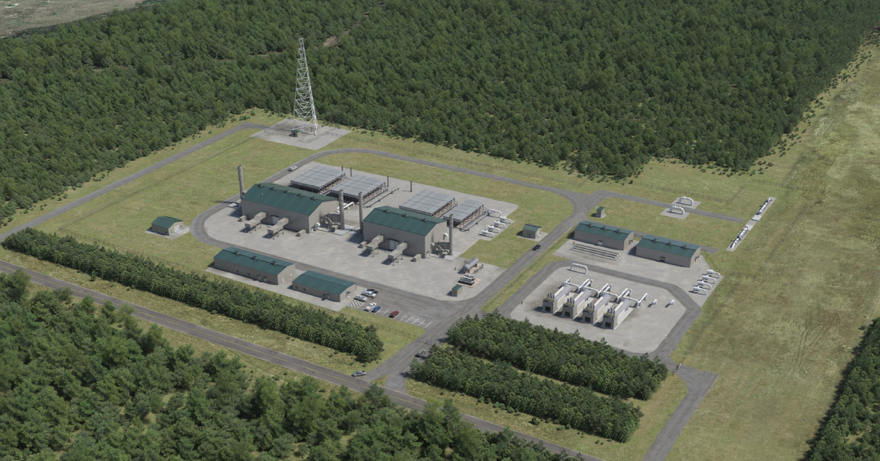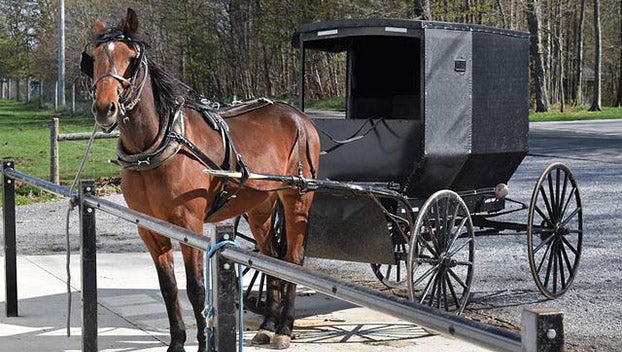No action taken on permit: Subcommittee created to look at station conditions
Published 2:10 pm Tuesday, October 25, 2016

- DOMINION During Monday’s board meeting, 17 people condemned the natural gas pipeline project, being led by Dominion as part of ACP, LLC. Supervisors set the hearing for next month during Monday’s meeting. Only one speaker supported the project.
Though planners took no action on a special use permit request for Atlantic Coast Pipeline LLC (ACP) to construct a proposed 53,515 horsepower natural gas fired compressor station on Route 56 between Shelton Store and Union Hill roads, the Buckingham County Planning Commission did establish a subcommittee to examine proposed conditions on the project.
Monday night’s unanimous action to establish the subcommittee, consisting of District One representative and Commission Chairman John Bickford and District Three Representative Pat Bowe, came a week after the second of a two-part, hours-long public hearing where speakers put up a nearly united front against the project, citing numerous issues.
Commissioners will meet again Nov. 21 at 6 p.m. to review the conditions placed and potentially vote on the permit request, making a recommendation to the county’s board of supervisors.
During the meeting, commissioners posed numerous follow-up questions to representatives from Dominion, the energy firm leading the
FROM PAGE ONE
project, pertaining to security, safety, regulations, inspections, compliance, staffing, noise and use of the natural gas.
“You could be creating a terrorist target in this county,” Bowe said, questioning the response from the firm in the case someone tried to compromise the facility’s security by blowing it up or destroying it. “How is aid from West Virginia going to help this?” he asked, referencing a plan to remote control the proposed station.
According to Kevin Zink, Dominion’s director of operations for compressor stations and pipelines, the firm would meet with law enforcement officers from state police and the sheriff’s office on security aspects of the facility, in addition to having security cameras and monitoring at the station. Zink said the firm works with volunteer fire departments and other emergency response agencies in training for emergency situations at such facilities. He also said while the company does not provide special equipment to agencies to respond to emergencies, it does make monetary donations to emergency response agencies.
Zink said Dominion has 109 compressor stations in five different states.
The station would use its own microwave communications system, using towers, to remote control the facility from another location, he said, with nine full-time positions.
Blowdowns, or the venting of accumulated gas, take place once every five years, Zink said. He said a proposal to use blowdown silencers coupled with federal regulations would keep the facility to emitting no more than 55 decibels of noise.
“You won’t even hear it,” he said.
Asking if it were possible to have staff on site 24/7, District Seven representative and Commission Vice Chairman Alice Gormus said what she was hearing “from a lot of people is they don’t think that y’all think it’s safe enough for somebody to be there overnight. Truth? Fiction? I don’t know. But they have a fear that if y’all are not comfortable enough with one of your employees being there, they’re not comfortable enough with it being in their backyard.”
Zink said Dominion has many unmanned facilities.
“We do have some of our larger storage facilities that are much more complex operationally that are manned 24/7,” he said.
When asked why ACP didn’t employ electric compressors instead of gas-fired ones, Emmett Toms, a Dominion external affairs manager, said it would take at least 17 miles of new transmission line from New Canton to supply the needed electricity. Toms said having to construct new transmission lines to the station’s site would be “more adverse” to the county.
Carla Picard, an externals affairs manager with Dominion, said many of the prior speakers’ concerns pertained to compressor stations at natural gas production facilities, not one like what’s proposed in Buckingham.
“You would not find (those issues) in a transmission compressor station,” she said.
Toward the end of the question and answer session, Bickford said he had some issues with the commission’s conditions. The commission has placed 32 conditions on the permit so far — which could be amended — addressing a number of concerns.
The station is part of ACP’s 600-mile natural gas pipeline, which, pending federal approval, would result in the pipeline beginning in West Virginia, spanning Virginia, and ending in North Carolina.





